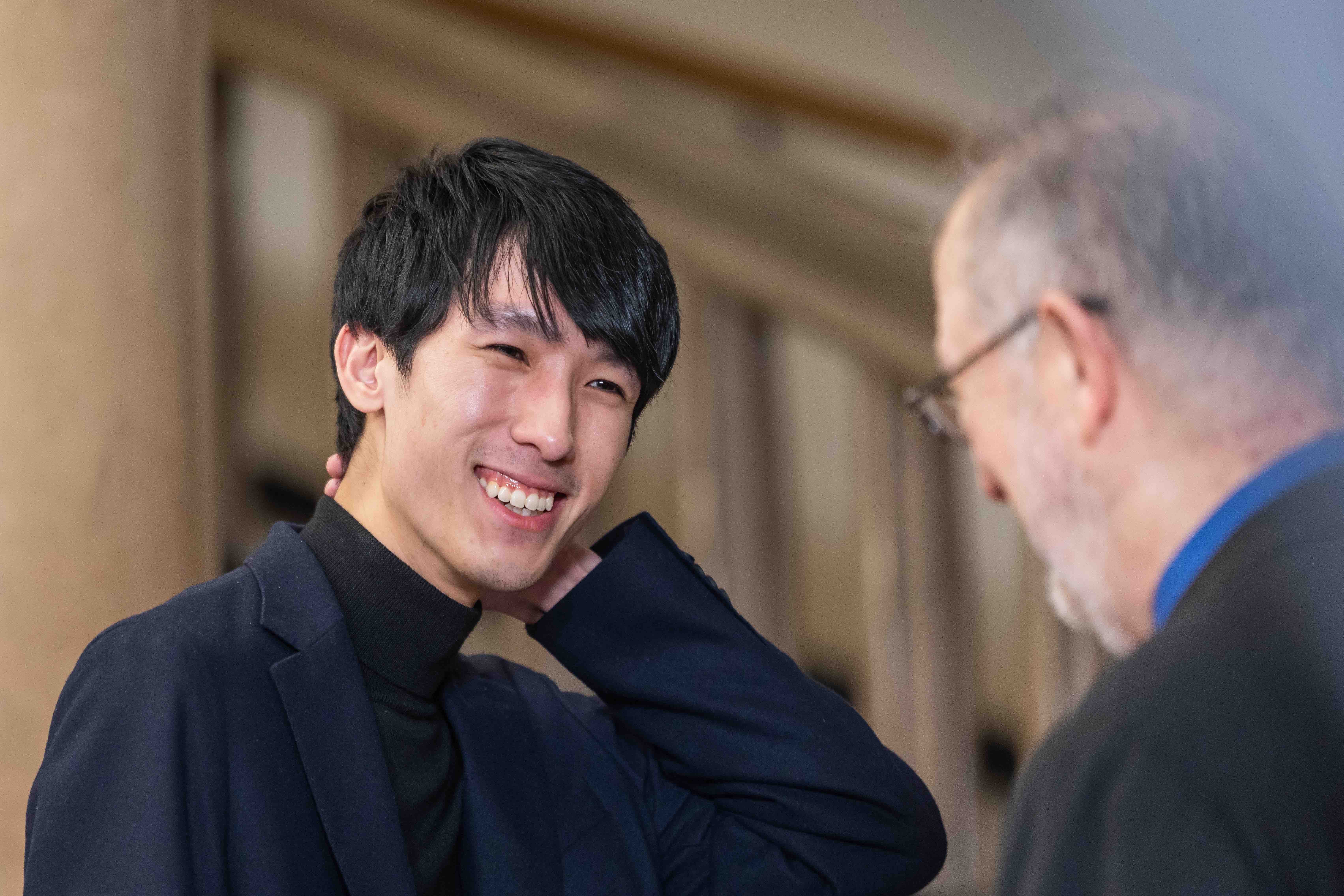The USA’s Eric Lu has beaten more than 600 other pianists to win the 19th International Chopin Piano Competition. Held every five years in Warsaw around the anniversary of the Polish composer’s death on 17 October, this is one of several piano tournaments that often launch major careers, along with Moscow’s Tchaikovsky Competition, the Van Cliburn in Texas and the Leeds International. Unlike any of those, however, the Chopin competition requires contestants to perform the music of just one composer.
Lu, 27, didn’t exactly need this win. He took first prize at the Leeds International in 2018 and has already released two records on the Warner Classics label. After his victory in Warsaw, he will take home a cash prize of €60,000 (£52,000). Second prize went to Canada’s Kevin Chen and third to China’s Zitong Wang, who will pocket €40,000 (£35,000) and €35,000 (£30,000) respectively.
Up until the announcement late on Monday night, though, it was not a given that anyone would win at all, as the jury can withhold the top accolade if it chooses. After the Russian pianist Stanislav Bunin took the gold medal in 1985, no first prize was awarded until 2000, when 18-year-old Yundi Li became the youngest (and first Chinese) player to win. Lu joins a list of winners that includes legends such as Maurizio Pollini (1960), Krystian Zimerman (1975) and Martha Argerich (1965). Yet a top-flight career is not always guaranteed by competition victories. Many winners of the Chopin have lapsed into obscurity, and some of the biggest names in classical piano have never won it.
Competitions are a controversial topic in the classical music world. Those in favour argue that they are essential for discovering new talent and launching international careers. The main arguments against them are that they stifle musicality by focusing on technical perfection, and reward conformity rather than originality. The Hungarian composer Bela Bartok said that competitions are for horses, not musicians. The Russian virtuoso Vladimir Horowitz also opposed them, arguing that jurors’ decisions were more often based on professional rivalries than participants’ talent.
The scandal that erupted at the 1980 Chopin competition drew attention to all of these issues. Yugoslavia’s Ivo Pogorelich, then 22, passed the first two rounds, exciting comment with his unorthodox interpretations and personal eccentricities (instead of the standard black tie, he wore a loose open-neck shirt and leather trousers). When he was eliminated in the third round, Martha Argerich – the Argentine pianist who had won the 1965 contest – resigned from the jury. Argerich thought it obvious that Pogorelich was a ‘genius’, but most of her fellow jurors couldn’t see beyond his unconventionality. Pogorelich has since established himself as one of the greats of the piano world, although his playing remains divisive.
The main arguments against them are that they stifle musicality by focusing on technical perfection, and reward conformity rather than originality
None of this year’s competitors, Lu included, showed an artistic personality as strong as Pogorelich’s – but their technical prowess and stamina were undeniable. This year, 171 pianists were selected for qualifying from a record 642 video applications (all contestants had to have been born between 1995 and 2009). Of these, 84 were chosen to compete in the main event. This consisted of three knock-out rounds, in which players were required to perform a 45-minute solo recital of stipulated repertoire, in a specified order. They were watched by the public and a 17-member jury of renowned pianists and Chopin experts, which scored them on a scale of one to 25 (25 being ‘perfect’, whatever that looks like).
Lu was one of 11 pianists selected for the finals, each of whom had to play the Polonaise-Fantaisie, Op. 61 – a long, demanding solo piece – and one of Chopin’s two piano concertos. By the end of the competition on Monday evening, each finalist had played about three hours’ worth of music from memory – an endurance test for jurors as well as players.
According to Michael Johnson, an American journalist who sat on the board of the London International Piano Competition from 1997 to 2005, this ‘is at the heart of the competition problem […] I sat on the pre-selection jury and whipped through 60 or 70 videotapes of applicants in quick succession. By number 40 or 50, my critical faculties were going numb and grading became more arbitrary. Jurors who spend up to two weeks in a dark hall listening to a parade of earnest young players suffer from the same sensory overload’. Musical fatigue is even worse during the Chopin competition, as jurors – and the public – are listening to the same pieces over and over again.
There is no denying the level of dedication and skill that it takes to reach even the first round of a major piano competition. But this only makes it more surprising that not every pianist who achieves technical mastery possesses the rare quality of musicality. There were some moments when I thought that Lu might have it; but on the whole, watching this year’s finalists made me long for another Ivo Pogorelich.








Comments